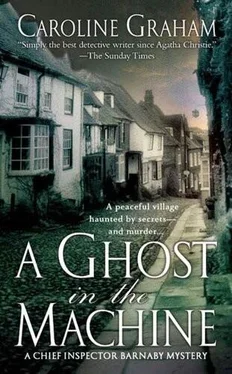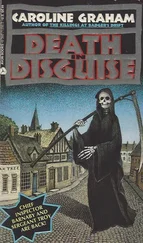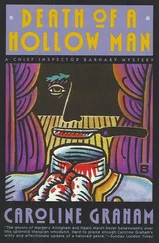Everyone said to Benny, “You wouldn’t know the place,” but of course she always would. Her last visit had been impressed, as with a branding iron, on to her conscious mind. She accepted that this was so and would always be so. She understood too that the agonising, sharp-edged pain to which her heart had, at last, been gently opened would blunt and soften in time. Even so, she remained glad that the larger half of life’s allotted span was now behind her.
After her cruel awakening to the self-protecting lie that had seemed to promise happy ever after, Benny forgot all about her talisman. The frantic craving for security that had obsessed her every waking moment simply vanished. Why yearn for something that didn’t and couldn’t exist?
Happily, love and friendship were still present in her life. Mallory had always been reciprocally dear but Benny was gradually becoming more and more fond of Kate, who was tremendously kind and supportive. She seemed to sense when Benny needed to talk – only recently ever the case – and when she wished just to be quiet. And both she and Mallory urged Benny to sleep at Appleby House if she was ever lonely.
Benny, on the deepest level of her being, was always lonely, though she derived great comfort from their kindness. But to her surprise it was the business, the Celandine Press, that helped her most through the first months after the court case and successful prosecution of the man who had caused Dennis’s death.
There was so much to do in the office, most of it quite alien to Benny’s previous experience. But Kate explained things clearly and was always on the spot if a problem arose. It was plain from the outset that both she and Mallory had complete confidence in Benny’s ability to cope. And so Benny coped, calmly and even with a certain élan. She was especially good at handling distressed authors, of whom there were many. It was not at all uncommon for Kate or Mallory to pick up the phone, only to have whoever was on the other end refuse to speak to anyone but Miss Frayle. After the hoped-for conversation, the writer, although nothing definite about the reception of his or her manuscript had actually been said, would hang up, feeling both consoled and valued. Mallory asked Benny once how she did it and Benny replied simply, “I know how they feel.”
Every day at five, when the office officially closed, she would go to the churchyard. Actually, this present afternoon she was a little late, easing open the lych-gate with some difficulty, balancing her folding stool, a small hand fork and a damp cloth.
Containing only his ashes, Dennis’s grave was barely half the size of the others. With permission from the vicar it had been edged with very old barley-sugar tiles from the garden at Appleby House. Benny had hoped to plant some rosemary too, for remembrance, but the Reverend Johnson had demurred, saying it was rather a strong grower for such a small space. So instead she usually included one or two sprigs with whatever other flowers she brought along.
The leaves had just started to fall. Tough, leathery ones, glowing ruby and bright amber, they covered the grave. Benny picked them off, loosened and removed a single weed, which had appeared overnight, opened her folding canvas stool and settled down.
It was a good time to come, the hinge of the day. There would rarely be anyone around, even in the summer. If there was she would talk to Dennis silently. She had already told him about the discovery of The King’s Armourer. About how Kate, dazed with disbelief, had brought it home from Kinders. The excitement it had raised: the happiness, the sorrow. Now Benny described briefly how the editing was going. Kate had said there was hardly anything to do, barely a cut to make. The book raced ahead of you, was how she described it. Vivid as a dream.
To ring the changes Benny would also talk about the non-business part of her day. Small domestic matters – ordering Madonna lilies from the new de Jaeger catalogue; Croydon’s injured paw, now coming along nicely after antibiotics from the vet. A pair of new linen curtains for the kitchen window patterned with forget-me-nots, blue as the sky.
Occasionally she would touch on village affairs – quarrelling in the church choir, yet another appeal to the Lottery Commission for a new village hall. Other times she would just sit, quietly crying out her grief, while the rooks wheeled and shrieked unnoticed above her head.
Quite often Dennis would be present. Not in any weird or mystical way – Benny had had no further truck with the Church of the Near at Hand – but just kind of solidly there. Asked to explain this she wouldn’t have known where to start. All in the mind people would have said, though Benny knew that wasn’t true. If it had been she could have conjured him up at any time. As it was, there was never any warning: just a sort of gathering of energy that slowly intensified. Her ears would hum a bit. The air changed, becoming warm and so close there was even a slight feeling of pressure. Then she was no longer alone.
Whenever this happened Benny would experience an overwhelming rush of gratitude. She always remembered to thank God in her prayers for such a gift of grace. To have had thirty years of true and loving companionship was blessing enough, but to still be aware of his dear presence…
Benny took several deep breaths and sat up straight. She could hear voices. An elderly couple were coming up the path with some chrysanthemums and a watering can. She folded up her stool, took out her cloth and carefully removed some specks of dirt from the stone on Dennis’s grave. It was of pale grey marble, veined with cream. The description, in plain gold letters, read simply:
DENNIS BRINKLEY
WRITER
1946–2001
Karen was now quite used to Dr. Dickenson. She had visited his surgery several times, once with her bad cough, now completely better, but also after falling from the parallel bars in the school gym and hurting her leg. Aunty Doris had gone with her to hospital where they’d taken a photograph of it and put the picture up on the wall for her to see. Another time they’d had a different sort of look at her head and that was called a scan.
The best part, the most important part, was that it had been absolutely true what the doctor had promised. She had told him the very thing that frightened her most, the thing she had promised Ava never ever to tell anyone, and it had been all right. Nobody had come to take her away. Or lock her in a cupboard and throw the key down a bottomless well like Ava told her they would. All the doctor said was he knew a special person who would be able to help Karen and that he’d arrange an appointment as soon as possible.
It seemed ages before they heard. Karen wasn’t worried; for her the worst was over. But Aunty Doris was. Karen noticed her all the time looking for the postman. When the letter finally came she nearly ripped the envelope to bits getting it out. When she’d read it she went very quiet and gave it to Ernest. Later, Karen found Doris crying. She climbed on to Doris’s knee and hugged her, saying that she mustn’t be sad because now everything would be getting better. “You’ll see” – Karen was solemn and assured – “soon all the hurting will go away.”
Although the letter had been signed “Dr. Barbara Lester,” and the appointment was at a proper clinic, when the day finally came the room where Karen found herself was more like a nursery than a surgery. There were squashy armchairs, a sofa and a whole range of things to have fun with. Shelves full of soft toys and dolls and others holding tanks and planes and Action Men and Lego. Lots of coloured pens and paints and paper were on a low table and a computer stood on a desk by the open window next to a stack of boxed tapes. There was even a doll’s house.
Читать дальше










